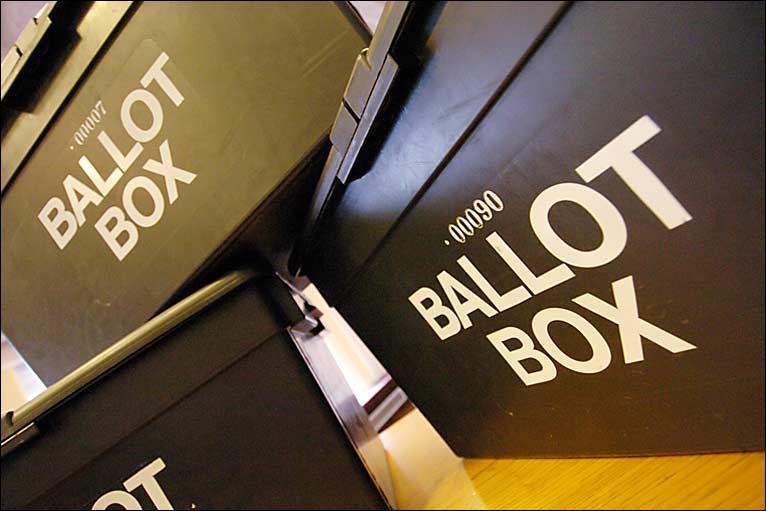JEFFERSON CITY, Mo. – A House task force assigned to look into the election issues in St. Louis County earlier this month gave Speaker Todd Richardson, R-Poplar Bluff, its recommendations for future action.
The House Task Force on Election Procedures and Accountability, led by Rep. Shamed Dogan, R-Ballwin, conducted two public hearings to investigate the voting problems that resulted in more than 60 precincts receiving incorrect or insufficient ballots. The recommendations included passing legislation to improve electronic voting technology; ensuring elections officials are properly qualified and trained; and requiring municipalities that fail to meet statutory filing deadlines to hold a special election and to pay the associated cost.

“What we saw on Election Day earlier this month was a long list of errors and problems that resulted in wide scale voter disenfranchisement in St. Louis County. It’s a disaster that should not have happened, and cannot be allowed to happen again in the future,” Dogan said. “Our task force conducted a thorough investigation and received helpful testimony from county election officials and election experts from throughout the state.”
Other task force recommendations included:
Some of the other recommendations made by the task force include:
- Passing legislation which lessens the disincorporation thresholds for fourth class cities in St. Louis County and creates a disincorporation procedure for third-class, charter, and home rule cities in St. Louis County;
- Passing legislation to require the state & political subdivisions to share proportional costs for primary & general elections;
- Creating a “Casualty Control Book” with instructions for every level of Election Day administration to control any abnormalities in the voting process;
- Ensuring that the “matrix” indicating the number of paper ballots to be distributed to each polling place is proofread after any changes, and that it is compared to a past matrix from a comparable election to ensure consistency;
- Requiring applicants for St. Louis County Board of Election positions to meet the same qualifications as St. Louis County Civil Service employees;
- Instituting an anti-nepotism rule at the St. Louis County Board of Elections that prohibits any employee from supervising another employee who is within three degrees of consanguinity;
- Softening the requirement that election directors be voters in their county for at least one year, so that a nationwide search can be conducted for those critical positions.
“Our report includes short-term and long-term recommendations we feel will substantively improve election administration in Missouri,” Dogan said. “My hope is that we can see these recommendations put into place so that the voting rights of all eligible Missouri voters will be protected, particularly in the upcoming August and November elections.”
The report also included what the task force found went wrong on election day.
“The direct cause of the systematic use of wrong numbers of ballots was a computer database error resulting from a failure of integration between the Secretary of State’s MCVR system and the internal “unity” system used by the St. Louis County Board of Elections. The fact that St. Louis County uses both the MCVR and their own internal voter database was a major contributing factor,” the report says. It also says that election authorities testified that they made the Secretary of State’s office aware of MCVR issues on numerous occasions.
The report also said the moving of the presidential preference primary to March meant that there were less than 30 days between elections and, as a result, election workers were overworked and in some precincts missed some vital responsibilities. Among these responsibilities were properly proofing the ballots.
The March primary also fully deployed electronic touch voting machines and, the report says, that meant they were unavailable as a backup when there were not enough paper ballots.








